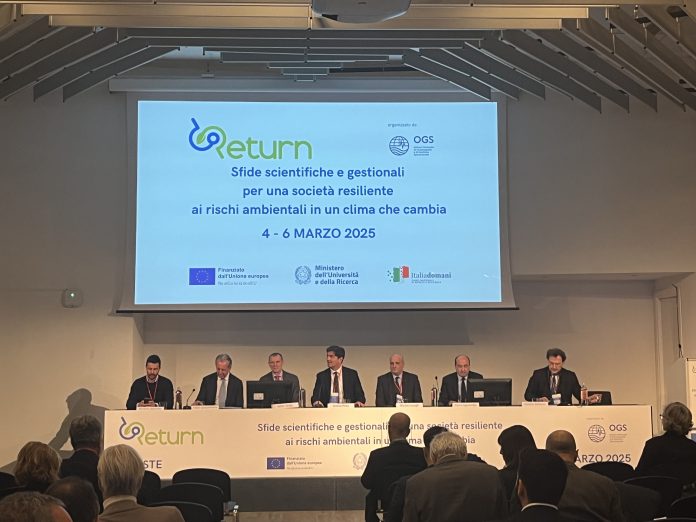by EH
Scientists, policymakers, and environmental experts convened in Trieste to discuss the pressing challenges of climate resilience at a conference hosted by the National Institute of Oceanography and Experimental Geophysics (OGS). Titled Scientific and Managerial Challenges for a Society Resilient to Environmental Risks in a Changing Climate, the event brought together specialists from diverse fields to assess strategies for adapting to environmental risks in an era of rapid climate change.
The region of Friuli Venezia Giulia, known for its diverse geography from Alpine peaks to vulnerable coastlines, served as a focal point for discussions. Experts highlighted the region’s unique exposure to rising sea levels, shifting precipitation patterns, and extreme weather events, emphasizing the need for tailored climate adaptation strategies.
Key participants included Trieste’s Prefect Pietro Signoriello, Municipal Councillor for Territorial Policies Michele Babuder, and OGS Oceanography Director Cosimo Solidoro. They underscored the importance of scientific research and regional cooperation in crafting resilient environmental policies.
A major topic of discussion was the European Commission’s latest directives on climate risk management, which call for accelerated and proactive responses from public institutions. Speakers also addressed global geopolitical shifts and their potential impact on international climate cooperation.
The conference showcased the latest findings from Friuli Venezia Giulia’s scientific institutions, including an annual report, Climate Signals, which monitors regional temperature trends, heatwaves, and extreme weather phenomena. The regional environmental agency presented data on pollution and ecological stressors, highlighting the urgent need for mitigation efforts.
Looking ahead, the event set the stage for the launch of the region’s climate adaptation and mitigation strategy on March 10. This initiative, part of the FVGreen legislative framework, aims to position Friuli Venezia Giulia ahead of European Green Deal targets by five years. Experts stressed the importance of a unified, knowledge-based approach to climate resilience, emphasizing prevention over crisis response.
The conference reinforced the urgency of addressing climate change at both regional and global levels, with scientific research playing a pivotal role in shaping sustainable solutions.
“Due to our unique geographical position, we face distinct climate challenges, from rising sea levels along the coast to changing weather patterns in the Alpine regions,” Scoccimarro stated. “While our governance and economic stability have positioned us at the forefront of experimentation and innovation, we are also increasingly confronting extreme weather events with greater frequency.”
The conference, titled Scientific and Managerial Challenges for a Society Resilient to Environmental Risks in a Changing Climate, gathered experts and officials, including Trieste’s Prefect Pietro Signoriello, Municipal Councillor for Territorial Policies Michele Babuder, and OGS Oceanography Director Cosimo Solidoro.
Scoccimarro emphasized that the urgency of climate action extends beyond regional concerns, citing the European Commission’s latest communication on climate risk management, which calls for an accelerated and proactive response from public administrators. “We are witnessing a geopolitical shift toward fragmentation and multipolarity, which could weaken the collective efforts needed to tackle global challenges,” he warned. “While it is valid to critique specific European policies, such as those in the automotive sector, subordinating climate action to economic and military competition is a dangerous path. Global power is meaningless without a planet to sustain it.”
He highlighted the contributions of Friuli Venezia Giulia’s scientific institutions, including the OGS and the regional climate working group, which publishes an annual report, Climate Signals, monitoring temperature increases, heatwaves, precipitation patterns, and extreme weather events. Additionally, the regional environmental agency manages human-induced environmental emergencies, such as pollution and ecological stressors.
Looking ahead, the region will launch its climate adaptation and mitigation strategy on March 10, engaging key stakeholders to identify vulnerabilities in the socio-economic system. The initiative aligns with FVGreen, a legislative framework passed two years ago aimed at achieving European Green Deal targets five years ahead of schedule. “Our goal must be prevention, rather than reconstruction,” Scoccimarro concluded, calling for a unified, knowledge-based approach to climate resilience.





























